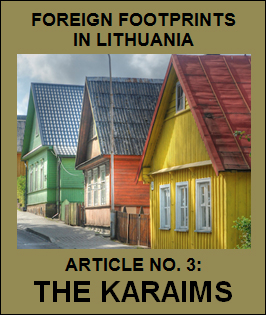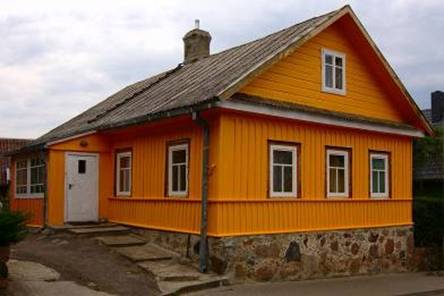
THE VOICE OF INTERNATIONAL LITHUANIA
|
VilNews has its own Google archive! Type a word in the above search box to find any article.
You can also follow us on Facebook. We have two different pages. Click to open and join.
|

Lithuania has an amazing 700-year history as an international melting pot. This has been especially evident since 1323, the year Grand Duke Gediminas founded Vilnius as Lithuania’s capital city and immediately decided to invite merchants, craftsmen, bankers, farmers, and soldiers from all Europe to come to the new capital, guaranteeing all freedom of beliefs and good working conditions. Vilnius became international, though with less of German or Scandinavian influence, as one could expect, rather influenced by Italy and Mediterranean ideas – greatly different from the other two Baltic capitals where Hanseatic influence became dominant.
VilNews will over some time this autumn publish articles about impacts of foreign nations and cultures here. We also welcome you, dear readers, to share with us information you may have about ‘foreign footprints in Lithuania’.
Karaims – Turkic tribe that found a new home in Lithuania

Karaim house in Trakai, 30 km from Vilnius.
The Karaims represent the smallest ethnic group in Lithuania, inextricably linked with the Crimean victories of Grand Duke Vytautas who brought 380 Karaim families to his castle in Trakai back in the 1390s.
During the 600 years that they have lived in Lithuania, this small Turkic people have preserved a strong national consciousness. A rather inward-looking community life, firm moral principles based on the teachings of the Karaim religion, and steadfast adherence to tradition - all these things have contributed to the survival of the people, of their basic characteristics, such as language, customs, and rituals, and thus, of their national identity. What also helped the Karaims of Lithuania survive under difficult conditions was the tolerance and respect for them expressed during all those centuries not only in the everyday contacts between people but also in the official state documents of various periods.
An exceptional period in the history of Lithuanian Karaims was the Soviet occupation, which thoroughly shook up the accustomed foundations of Karaim community life. The consequences of that time, which are still felt today, make it much more difficult for people to "return to their roots," to the rhythms of their national life.
Many world scholars are interested in the cultural heritage that Lithuanian Karaims have preserved to the present day. The still living Karaim language, which belongs to the West Kipchak subgroup of the Turkic family of languages, receives the most attention. It is being studied from several angles - as a language that has preserved rare old forms and words that have disappeared from other languages of the Turkic family and also as one that has borrowed and in its own way adapted some features of vocabulary and syntax from neighbouring languages (Lithuanian, Russian, and Polish).
- Bookmark :
- Digg
- del.icio.us
- Stumbleupon
- Redit it
VilNews e-magazine is published in Vilnius, Lithuania. Editor-in-Chief: Mr. Aage Myhre. Inquires to the editors: editor@VilNews.com.
Code of Ethics: See Section 2 – about VilNews. VilNews is not responsible for content on external links/web pages.
HOW TO ADVERTISE IN VILNEWS.
All content is copyrighted © 2011. UAB ‘VilNews’.

 Click on the buttons to open and read each of VilNews' 18 sub-sections
Click on the buttons to open and read each of VilNews' 18 sub-sections 


